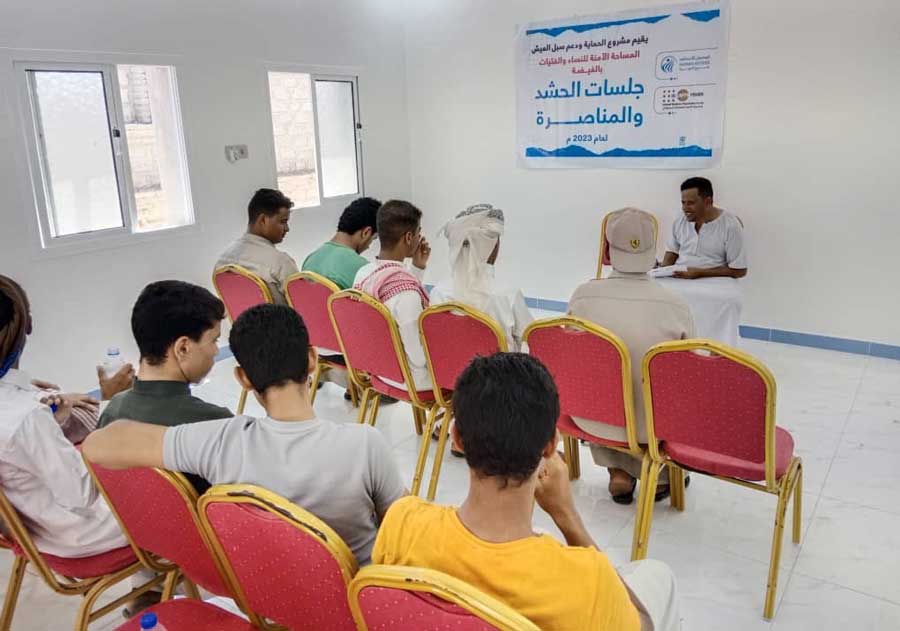
HUMAN ACCESS in the governorates of Al-Mahra and Marib implemented a number of planned activities within the protection and livelihood support project activities "Safe Space for Women and Girls" funded by the United Nations Population Fund (UNFPA) to address issues related to Yemeni women and to create a positive and tangible impact in promoting sustainable development efforts.
In the city of Al-Ghaydah, Al-Mahra, the safe space held a periodic meeting of the peer network, where the meeting discussed the importance of the network's role in advocating for women's issues.
Additionally, 14 male and female students from the displaced and host communities attended a mobilization and advocacy session where they discussed the reluctance of students to enroll in university education in the governorate.
The safe space in Al-Ghaydah also organized a life, marketing and financial skills training for 26 beneficiaries of economic empowerment projects this year in the fields of sewing and pastry making, in order to assist needy families facing worsening living conditions as a result of the ongoing conflict by helping them engage in the labor market and provide a sustainable source of income.
To verify the accuracy of their data and the extent of their ability to benefit from economic empowerment grants, the safe space in Al-Matar area in Marib conducted a field visit to the places and camps of female applicants for sewing and hairdressing qualifying courses, and to make comparison between them in the context of arranging and preparing to perform these programs.
The safe space also carried out awareness sessions on the importance of education.
The second quarterly meeting of the community peer network was also organized to study holding mobilization and advocacy campaigns for women's issues in men's gatherings, and to benefit from mosque sermons to promote women's rights, raise public awareness of the dangers of gender-based violence, and protect women, girls, and society as a whole from the devastating effects of this social scourge.
Furthermore, the second quarterly meeting of the community protection committees was organized, where a number of important issues were discussed, including follow-up and detection of cases of violence against women, monitoring and referral to safe space services, and community awareness initiatives to be performed in the near future.
There was a special focus on manifestations of violence, particularly in view of their spread and implications for society.
Related articles
- Periodic meetings and field visits within safe spaces for women and girls
- Recreational activity for children, vocational training for women, and meetings for peer networks and community committees
- Vital support to help women and girls affected by crises
- Promoting women's participation in society and alleviating their difficulties
- Concrete solutions to ensure the safety and dignity of women and girls
- A series of ongoing support to protect and empower women and girls


